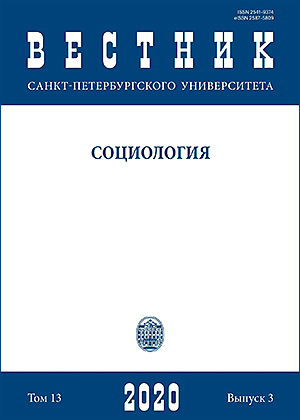“Follow the path of Russia”: The experience of transforming Chinese society
DOI:
https://doi.org/10.21638/spbu12.2020.306Abstract
The purpose of this article is to discuss the dialectical application of the Soviet experience in the construction of socialism in China. Mao Zedong formulated the thesis “Follow the path of Russia”, thereby explaining the strategy for transformation of Chinese society. China in those times experienced economic difficulties of the pre-industrial stage of development, and “following the path of Russia” meant taking Marxism as the guiding ideology and developing
along the path of socialism, overcoming internal and external barriers. The authors of the article illustrate how the Soviet experience was differentiated by the Chinese leadership: Mao always divided the Soviet experience into a basic experience and a specific experience. The former reflects the common laws of human society at specific stages of development, while the latter is the specific form of realization of these laws, divided into the part verified by practice
and learnable, the part that is only applicable to the USSR and the wrong part that must be abandoned. “Following the path of Russia” encouraged the new China to complete the tasks left by the Chinese Democratic Revolution, quickly establish a relatively complete national economic system and continuously improve its international status. From this theory to “Taking China’s own way”, it is required to continue to adhere to the road of scientific socialism and the development of socialism with Chinese characteristics in the new era. An analysis of this theory is not only crucial for China to follow the path of socialism with Chinese characteristics, but also helps scientists, researchers, and politicians in many countries around the world to understand the path of socialism’s development with Chinese characteristics, better understand history and Chinese culture, and promote the exchange of world culture more successfully.
Keywords:
Mao Zedong, China, socialist development, USSR experience
Downloads
References
References
Downloads
Published
How to Cite
Issue
Section
License
Articles of "Vestnik of Saint Petersburg University. Sociology" are open access distributed under the terms of the License Agreement with Saint Petersburg State University, which permits to the authors unrestricted distribution and self-archiving free of charge.




